|
Thanks to Marilyn & Craig Miller and Alice & Cal Elshoff, and several other concerned folks who called Bend Parks & Rec or ODFW, Grace was rescued by Simon with OR Dept of Fish and Wildlife. A treble hook was impaled into the bird's tongue and fishing line wrapped around it, causing some of the tongue tissue to die and the tissues to swell. No doubt this gal must have been in a lot of pain. She could not eat either, so she needs to gain some weight. Dr. Jeff Cooney, with the help of Jeanette Bonomo and Bend Veterinary Clinic, got the hook out and the bird is now on antibiotics and a pain med. She will recuperate here until ready for release. Two days into rehab, her tongue looks somewhat better (tongue tissue heals relatively fast), whatever dead remains will have to be sloughed off and regrown (that may take time). If she can fend for herself, we will release her. If she needs more time she will have to stay in rehab longer. Grace needs sponsors, these are expensive birds to rehabilitate. She really needs more food - a specialty type of waterfowl food that must be ordered (not a chicken or duck food from the feed store). If you want to help her out, and us at Grebe Acres, please consider donating, any amount can be helpful. Stay tuned for updates. (And please try to not lose your fishing line and lures....she likely bit down into some vegetation and got the lure into her tongue).  Grace in her inside caging. Tomorrow she goes outside to an aviary set up for her with appropriate substrate for her sensitive feet and soon a water set up too (hopefully).  Look a that pretty face! 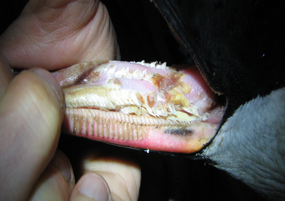 Here is what fishing line and tackle can do to a bird's tongue...the yellowish and dark colored areas on the tongue and bill are dead tissue. She will have to grow this back, hopefully she is able to do that with time. Just got this little one in, landed in a school parking lot and was found near a fence. This is a type of grebe, they are a diving and fish eating water bird. They are not a duck.
They are excellent swimmers; better swimmers than flyers actually. They fly through the water like penguins and their feet are positioned in the rear of their bodies like penguins, rather than below them like a duck. They breed in northern area lakes and rivers, then migrate to warmer southern climates in the winter. They accidentally land on wet pavement thinking it is water when distressed and needing to make an emergency landing. They can also land on solar panels, and other shiny objects that look like water. They usually make one long migration, but if they have lost energy for some reason or are caught in a bad storm - or hit by a nasty cold front in this one's case - they will try to get out of the air and land. Unfortunately, the positioning of their legs means they can not get into the air again as they are not designed to walk or run on land. They hobble only. And because they weight a good bit for their size and their wings are small for their bodies (designed more for fast swimming to catch fish), they are unable to take off again. Grebes run on the water a bit before taking off, so not any old pond will do for take off. So they can get stuck on small bodies of water that humans put them on thinking they are helping. If you find one, call a rehabber. We can find out WHY the bird needed to land, make sure it is ok from the impact of landing on a hard surface, and get it to an appropriate take off point, or even help with the migration. (Oh, the red eyes allow them to see under water really really well). |
AboutNative Bird Care's is celebrating its 10th anniversary! Our main focus is song, shore, and waterbirds. We offer specialized care and facilities for these extraordinary birds.. Archives
July 2024
Categories
|
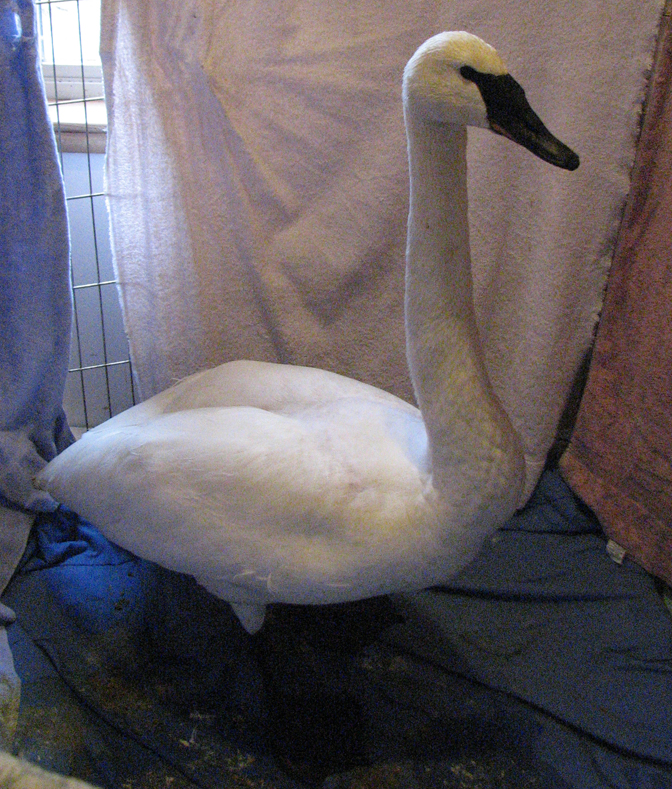
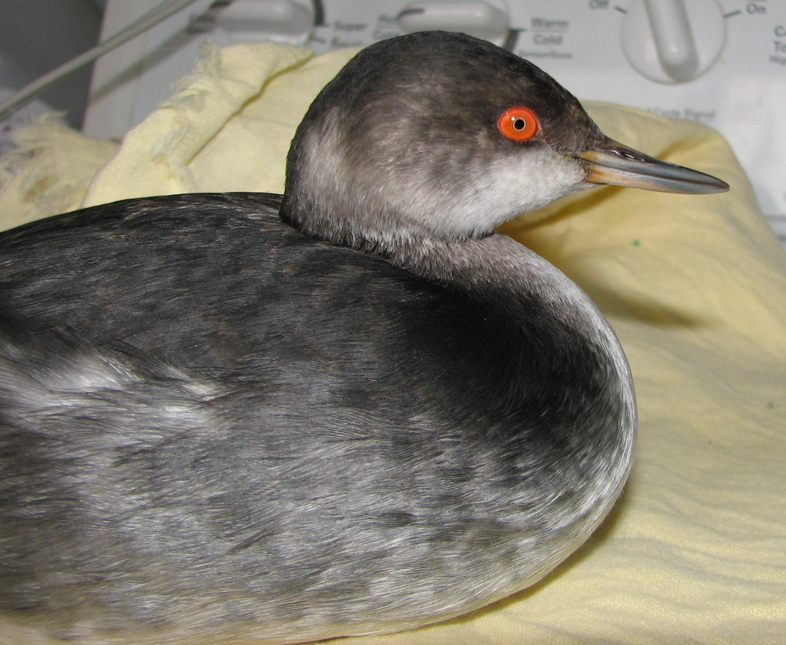
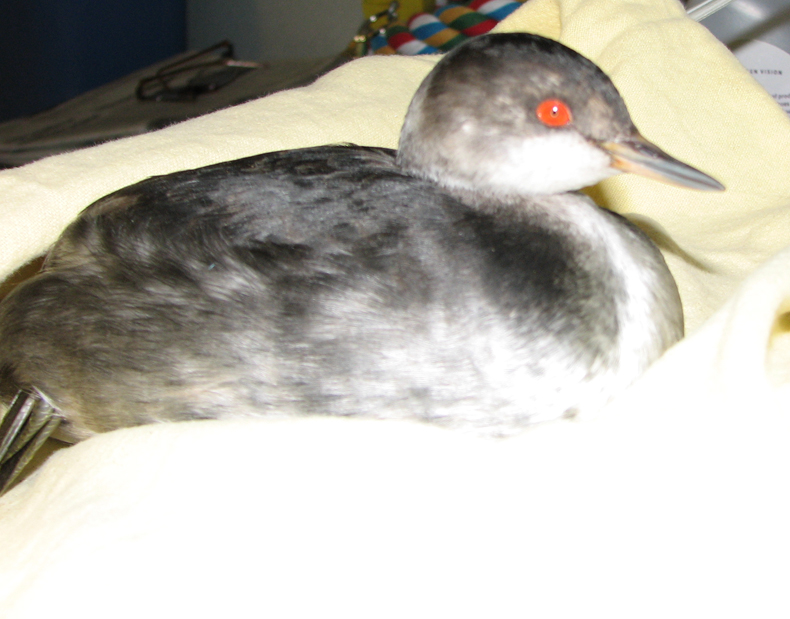
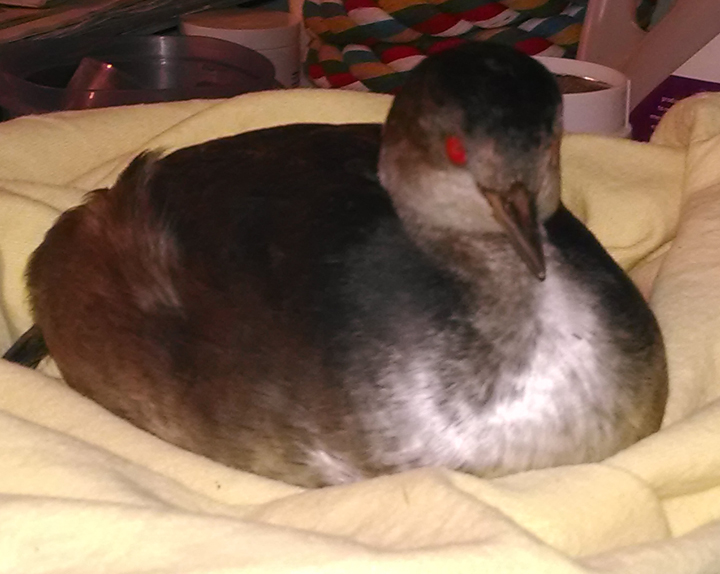
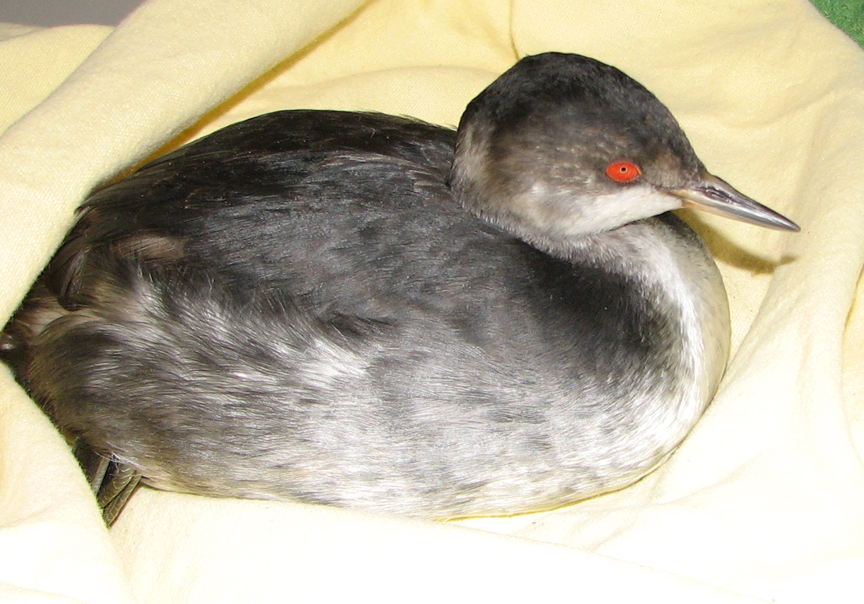
 RSS Feed
RSS Feed